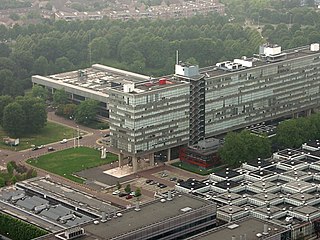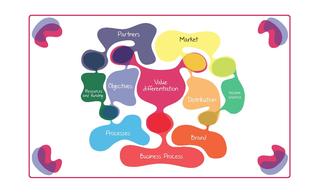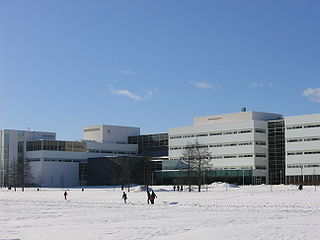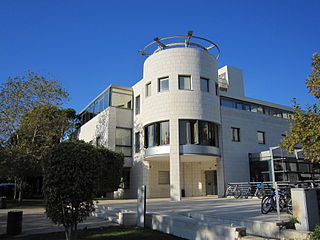
The Eindhoven University of Technology, abbr. TU/e, is a public technical university in the Netherlands, located in the city of Eindhoven.

Westminster International University in Tashkent (WIUT) is the first international university in Uzbekistan and first in Central Asia to offer Western education, with United Kingdom (UK) qualifications. WIUT was established in 2002 in partnership between the "UMID" Presidential Foundation, the Ministry of Higher and Secondary Specialized Education of Uzbekistan, and the University of Westminster in London (UoW).
Human-centered computing (HCC) studies the design, development, and deployment of mixed-initiative human-computer systems. It is emerged from the convergence of multiple disciplines that are concerned both with understanding human beings and with the design of computational artifacts. Human-centered computing is closely related to human-computer interaction and information science. Human-centered computing is usually concerned with systems and practices of technology use while human-computer interaction is more focused on ergonomics and the usability of computing artifacts and information science is focused on practices surrounding the collection, manipulation, and use of information.
Computer-supported collaborative learning (CSCL) is a pedagogical approach wherein learning takes place via social interaction using a computer or through the Internet. This kind of learning is characterized by the sharing and construction of knowledge among participants using technology as their primary means of communication or as a common resource. CSCL can be implemented in online and classroom learning environments and can take place synchronously or asynchronously.
The University of MichiganSchool of Information (UMSI) or iSchool in Ann Arbor is a graduate school offering baccalaureate, magisterial, and doctoral degrees in informatics and information science.

Business engineering (BE) is the development and implementation of business solutions, from business model to business processes and organizational structure to information systems and information technology (cf.).
DRIEMS is a technical college located in Tangi Cuttack district of Odisha, India, India. It has been affiliated to the Biju Patnaik University of Technology since 2004. From 1999 to 2003 it was affiliated to Utkal University. It is accredited by the National Board of Accreditation and National Assessment and Accreditation council and rated as an "A" grade institute. It is an ISO 9001:2008 certified institution. It offers the following courses:

Wayamba University of Sri Lanka is the thirteenth national university in Sri Lanka. It was established as the Affiliated University College of North Western Province in 1991 and after it was become the Rajarata University of Sri Lanka "Wayamba mandapa" in 1996.It was a full flagged university naming as Wayamba University of Sri Lanka in 1999.The main purpose of the university is offering English-medium degree, diploma and certificate courses in areas such as Agriculture, Applied Science, Management and Technology for students and working professionals. The courses are highly up-to-date and job-oriented.
The Advanced Learning and Research Institute (ALaRI), a faculty of informatics, was established in 1999 at the University of Lugano with the mission of promoting research and education in embedded systems. The Faculty of Informatics within very few years has become one of the Switzerland major destinations for teaching and research, ranking third after the two Federal Institutes of Technology, Zurich and Lausanne.
The International Design Business Management program (IDBM) is a joint teaching and research programme in Aalto University, Finland. The purpose of the program is to bring together experts in different fields within the concept of design business management.
The Professional Doctorate in Engineering (PDEng) is a Dutch degree awarded to graduates of a Technological Designer (engineering) program that develop their students' capabilities to work within a professional context. These programs focus on applied techniques and design, in their respective engineering fields. The technological PDEng designer programs were initiated at the request of the Dutch high-tech industry. High-tech companies need professionals who can design and develop complex new products and processes and offer innovative solutions. All programs work closely together with high-tech industry, offering trainees the opportunity to participate in large-scale, interdisciplinary design projects. With this cooperation, PDEng programs provide trainees a valuable network of contacts in industry. Each program covers a different technological field, for example managing complex architectural construction projects, designing mechanisms for user interfaces for consumer products or developing high-tech software systems for software-intensive systems. Participation in a program that awards the abbreviation PDEng requires at least a Master's degree in a related field.

The Agora Center is a separate institute at the University of Jyväskylä in Central Finland. By its nature, the Agora Center is interdisciplinary and networked. Its purpose is to conduct, coordinate, and administrate top-level research and development that relates to the knowledge society and which places emphasis on the human perspective. The research and development is conducted in the form of fixed-period projects in cooperation with the University of Jyväskylä’s other faculties and separate institutes, businesses, the public sector and other relevant parties. The Agora Center also promotes researcher training through its various research projects. One of the core missions of the Agora Center is to effectively combine research and development with education. The project staff includes a high number of students and post-graduate students.

Environmental engineering science (EES) is a multidisciplinary field of engineering science that combines the biological, chemical and physical sciences with the field of engineering. This major traditionally requires the student to take basic engineering classes in fields such as thermodynamics, advanced math, computer modeling and simulation and technical classes in subjects such as statics, mechanics, hydrology, and fluid dynamics. As the student progresses, the upper division elective classes define a specific field of study for the student with a choice in a range of science, technology and engineering related classes.
4TU is the federation of the four Dutch universities of technology :

The Riyadh College of Technology(RCT) is a technical college in Saudi Arabia. It was established in 1403H/1983 as the first college of technology in the Kingdom. Its first objectives and priorities to graduate the qualified technical cadres scientifically and practically to work in technical areas those contribute directly in building the national economy. During the first six years of implementation of the diploma program, the Technical and Vocational Training Corporation (TVTC) was in need for technical trainers to work in its technical institutes. Therefore, the corporation adopted the idea of applying Bachelor program to rehabilitate the distinguished graduates of the diploma program in technical college to work in the field of training in industrial secondary institutes and technical colleges. In 10/06/1409H, a royal decree was issued (M/194/7) to develop the intermediate technical college in Riyadh and the duration of training period for four years to granting Bachelor's degree in the technical engineering and give graduates the same privileges granted to graduates of engineering schools in the Kingdom.

Hsing Wu University is a private university located in Linkou District, New Taipei, Taiwan.

Ming Chi University of Technology is a private university of technology in Taishan District, New Taipei, Taiwan. Established in 1963, it currently consists of three colleges: College of Engineering, College of Environment and Resources, and College of Management and Design.
Ramaiah University of Applied Sciences (RUAS) is a UGC approved Private University in India.It was created by an act in the State of Karnataka, India and was established in December 2013.

The Technion’s Faculty of Architecture and Town Planning was established in Haifa in December 1924, as one of the Technion’s first two departments. The program trains architects, landscape architects, urban planners, and industrial designers. Urban planning and industrial design are offered as advanced degrees.










